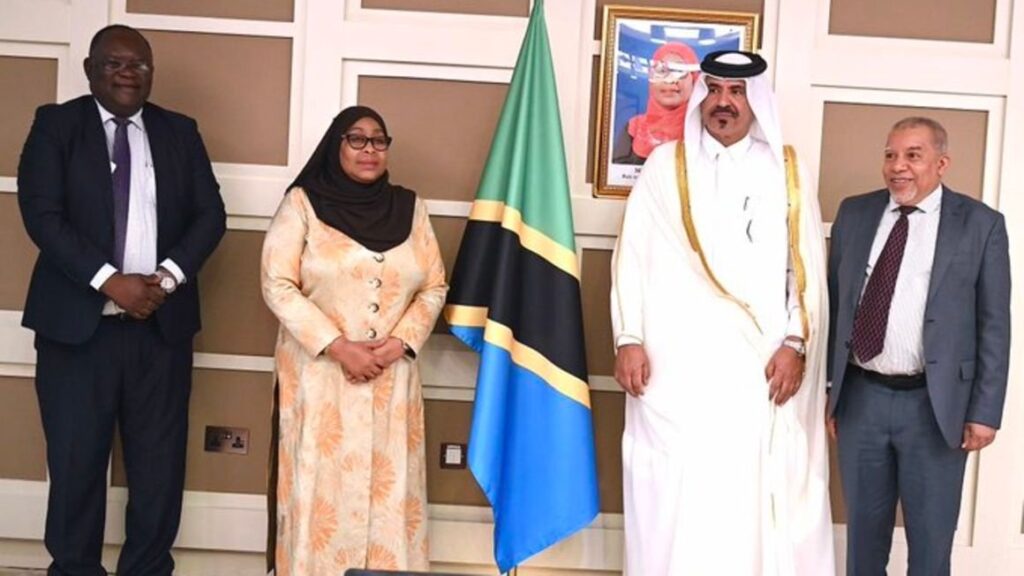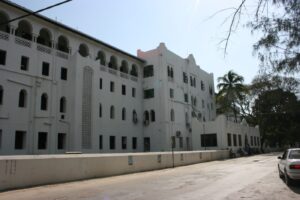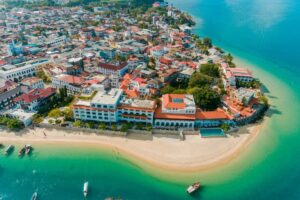Photo: Tanzanian President Samia Suluhu Hassan meets officials in Doha, Qatar on October 4, 2022. PHOTO | STATE HOUSE TANZANIA
Tanzania have signed an agreement with Qatar to boost trade and investment relations between the two states as President Samia continues with her official visit to Doha. She arrived in Qatar on October.
The tripartite deal was signed on Thursday in Doha by Mohamed Bin Ahmed Twar Al Kuwari, the First Vice-Chairman of Chambers of Commerce, President of the Tanzania Chamber of Commerce, Industry and Agriculture (TCCIA) Paul Koyi, and Ali Suleiman Amour, the Chairman of the Zanzibar National Chamber of Commerce (ZNCC).

Tanzanian Chamber of Commerce president Paul Koyi, President Samia Suluhu Hassan, Qatar’s Chamber of Commerce vice chairman Mohamed Bin Ahmed Twar Al Kuwari and Zanzibar National Chamber of Commerce Ali Suleiman Amour in Doha on October 6, 2022. PHOTO | STATE HOUSE TANZANIA
“The objective of the MoU is to enhance trade and investment cooperation and partnership between business communities from Tanzania and Qatar, particularly in the areas of tourism and hospitality, infrastructure and energy,” noted Zuhura Yunus, Director of Presidential Communications.
Tanzania’s President Samia Suluhu Hassan also held talks with Ali bin Ahmed Al Kuwari, Qatar’s Finance Minister, on double taxation between two countries particularly on investments, gas sector, livestock, tourism and agriculture.
The two countries agreed to share expertise on emergency and trauma care.
Share this news
This Years Most Read News Stories

East Africa Must Prepare for More Extreme Rainfall During the Short Rainy Season – New Study
East Africa has recently had an unprecedented series of failed rains. But some rainy seasons are bringing the opposite: huge amounts of rainfall.Continue Reading

Huduma Zimezorota Hospitali Ya Rufaa Mnazi Mmoja Zanzibar
Huduma katika Hospitali ya Rufaa ya Mnazi Mmoja Zanzibar zimezidi kuzorota huku wananchi wengi wakilalamikia uongozi wa Hospitali hiyo na watendaji wake.Continue Reading

Zanzibar tourism investors alarmed by new mandatory insurance fee
Tourism investors in Zanzibar have voiced their concerns over the introduction of mandatory travel insurance, cautioning about its potential negative impact on the industry.Continue Reading











